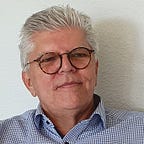Inspiring post, Jessica. Inspiring in many different ways. I wanted to ask you: Do you really know those successful people who have those daily routines? I'm not so sure. From the ones I know, I could not find that habit. It's almost the other way around; there are no routines people develop not to lose track. I avoid that question in interviews, but my recent dive into neuroscience showed me a different picture. I'm an entrepreneur like millions of others, A serial entrepreneur like not so many. one that brought two companies from zero into the billion $ range, like only a few.
I agree - I take my time off whenever I'm up to. I sleep for 20 minutes during the day but have no routine. When my brain has questions, I walk away and try to give it the answers. Likewise, when I have a question, I ask my brain to figure it out for me, reaffirming the question when I go to bed at night. Usually, I receive the answer in the morning. No routine here as well. The world is telling everybody who is asking but also everybody else they need a daily routine? Why? People get told to be successful, what to do to be successful, how to develop wealth, and so forth. It feels to me like the mass murder of the human individual. Who has the right to influence people that way? Only because it worked for us?
The only thing humans may really need is a few different ways to find out what they really want. And we shouldn't even help achieve it because there are an estimated 30,000 different brain wirings and 30,000 different paths to meet one's inner self.
When industrial and office automation is at 98%, we will have 2% people working in any production and office work plus the 2% working in agriculture that we have already today. It would be good to prepare the remaining 96% to find their SELF, talents and use them to their fullest extent. Humanity will get out of its self-developed slavery and back to ingenuity, using autonomous machines to complete their creative concepts or work. It will not be next year but in the next 30 years. Quickly enough to rethink and be more conscious of how we "help" others.
The agricultural revolution 12,000 years ago was the biggest push to organize ourselves as homo sapiens in the past 300,000 years. The ultimate peak of that era was the industrial revolution 250 years ago, where most humans in the "developed world" had been organized into a job.
But that will change towards a degree of independence, individualism, and freedom that homo sapiens is not used to have and will have a hard time dealing with. What a beautiful problem to have.
Just my 2 cents
